Does the Rear-Drive Sport Version of the 2019 BMW 330i Rekindle the 3's Previous Driving Magic?
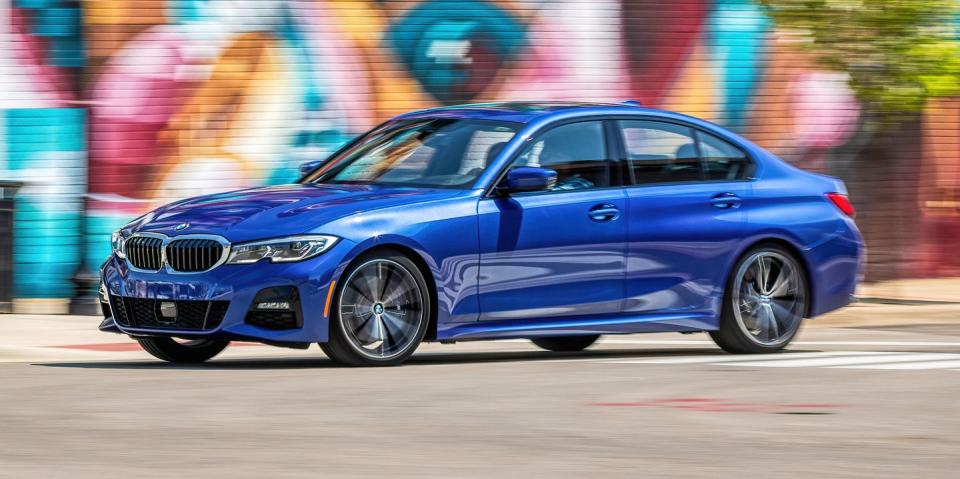
Our most burning question regarding the latest BMW 3-series is whether or not it has regained its driving mojo with its seventh-generation overhaul for the 2019 model year (2020 for the six-cylinder models). By first providing us with an all-wheel-drive variant without all the chassis upgrades, BMW made this question more difficult to answer definitively.
No more excuses. Although we've yet to get our hands on a six-cylinder M340i, this test is of the all-in, rear-drive, four-cylinder sport variant, with the M Sport package (larger wheels and summer tires, plus a bundle of convenience items) and the Track Handling package (limited-slip differential and larger brakes). Opting for the Track Handling bundle also necessitates adding the $700 adaptive shocks; initially the package also was available with the new standard passive units that have a clever hydraulic element to limit body motion.
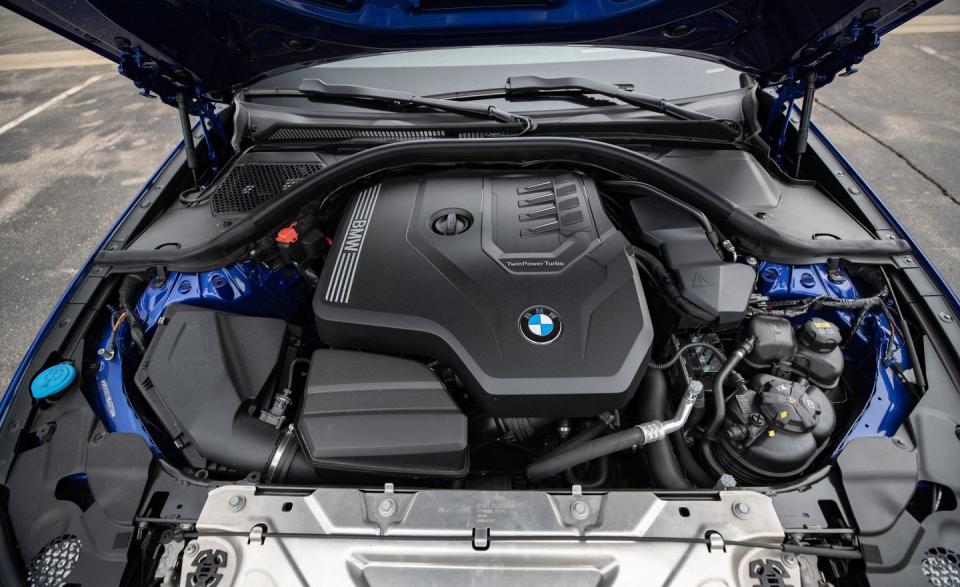
Do we even need to mention that we lament that opting for the sportiest four-cylinder 3-series now adds $7450 to the price? Back in the last 3 that we loved, the E90 generation from 2006 to 2012, there was a simple $1600 sport package, and that's it. Just last year, the price of the M Sport and Track Handling packages was $1000 cheaper.
It's Expensive, but Is It Good?
Dynamically, there's a lot to like. The suspension damping feels solidly back into the taut-but-not-too-firm zone that BMW used to own, and the electronically controlled adaptive dampers make for a much smoother ride in Comfort mode than the fixed-damper M Sport setup, which, as mentioned earlier, is no longer available. However, there's an occasional thwack over sharp impacts that both front wheels strike simultaneously.
Although the 3 is balanced, it's hard work to get its tail to swing out. There's lots of grip from the Michelin Pilot Sport 4S summer tires, which hang on for 0.94 g around the skidpad, and, in conjunction with a satisfyingly firm brake pedal, generate stops from 70 mph in a scant 150 feet. These are both solid improvements over the all-wheel-drive 3 on Bridgestone performance tires and ahead of the competitive pack.
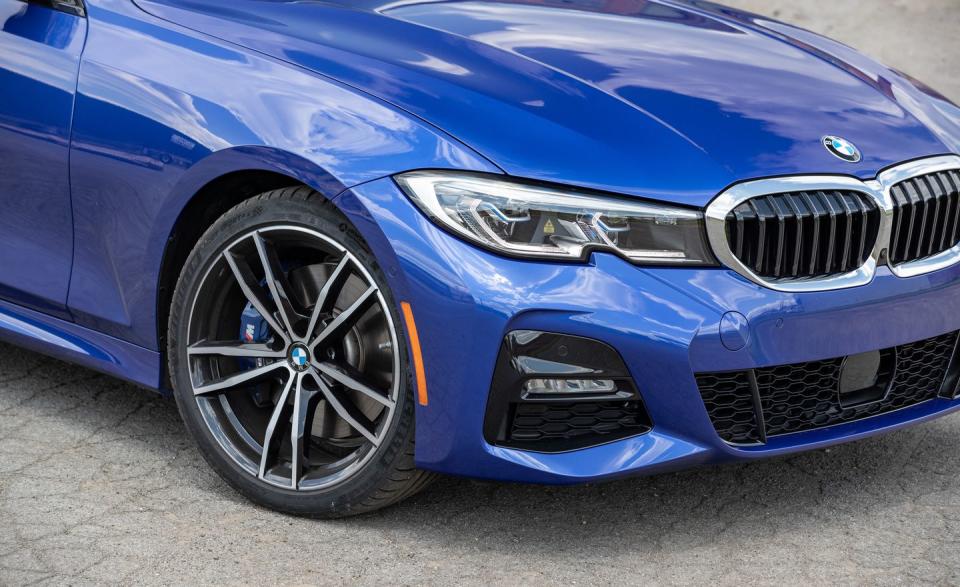
Long a BMW strength, the front seats are firm and supportive, with the characteristic side-bolster adjustment that gives the driver a secure embrace. We certainly miss the manual-transmission option, but if an automatic is a must, you can't do much better than the quick-shifting and terrifically refined ZF eight-speed unit.
Then there's the steering, which was our largest reservation when we drove a prototype 3 about a year ago. It remains the 3's biggest demerit. The effort feels reasonable at moderate speeds, but there's a dead zone on center that's annoyingly omnipresent at highway velocities. Selecting Sport mode adds some helpful damping effort, but it doesn't eliminate the dead spot. While road texture can be felt, the steering isn't forthcoming with at-the-limit feedback about grip levels. Steering is a key connection point in any vehicle, and every one of our staff who drove this 3 returned with gripes about its helm. It seems BMW still hasn't quite cracked the code of excellent electric power steering as well as other automakers, particularly Porsche and General Motors.
Still an Excellent Luxury Sedan
Although for decades we've been trained to have higher driver-involvement expectations for the 3-series, the BMW has never wavered from and continues to be an excellent all-around luxury sedan. It's quiet at speed, and its back-seat space, while no larger than before, is generous amongst the competitive set— and much larger than the Genesis G70's.
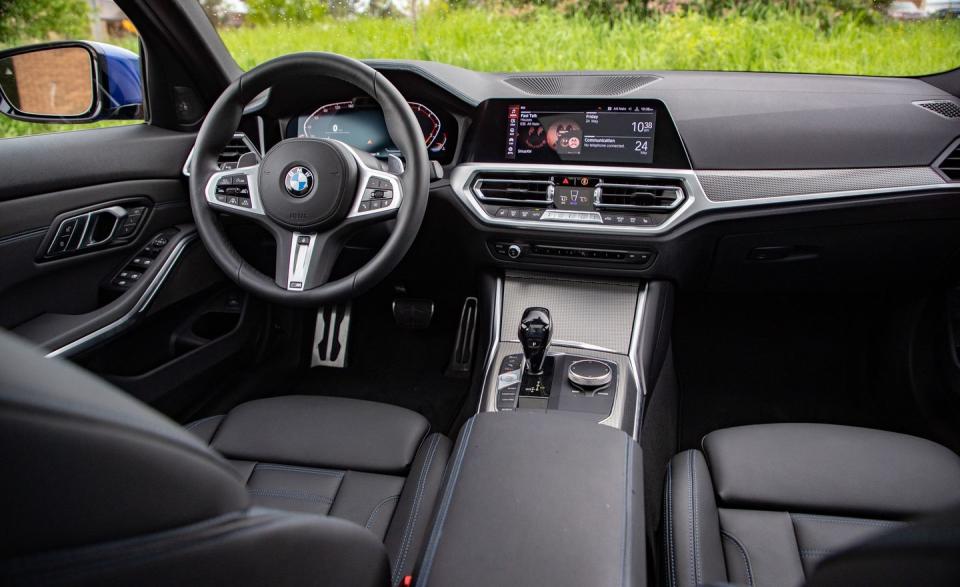
The 330i's turbocharged 2.0-liter inline-four is smooth, refined, and does no wrong during the everyday commute, but also pulls hard to its 6500-rpm redline. The sprint to 60 mph takes 5.3 seconds, which is at the quick end of the segment. What we can't wrap our minds around, however, is why BMW decided in this latest 3 to add in such an obnoxiously fake roar to the engine, which grows even more prominent in Sport mode. This 3-series also delivered an excellent 42 mpg in our 75-mph highway fuel-economy test, the best of any compact-luxury sedan we've tested, matching even a Jaguar XE diesel. Winning in refinement (augmented noise aside), performance, and fuel economy is a trifecta that makes the BMW's B48 four-cylinder a benchmark among today's flock of turbo fours.
There's no question that this latest BMW 3-series is dynamically a large step in the right direction, with solidly impressive performance numbers. But it is not quite back to its position as our default favorite in the segment. The Alfa Romeo Giulia provides a more tactile and emotional driving experience, while the Genesis G70 has a far more upscale, quilted-leather interior at a substantially lower price.
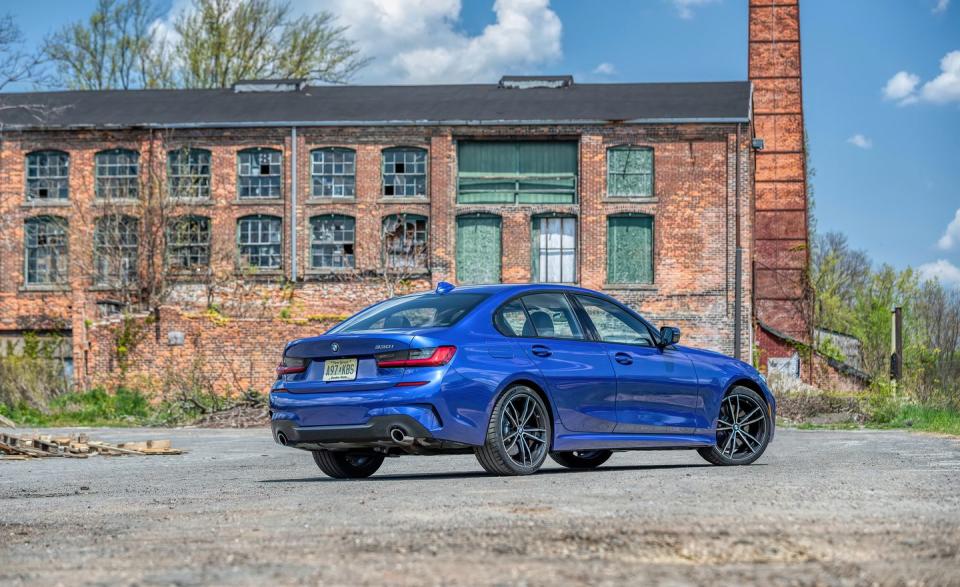
You Might Also Like

 Yahoo Autos
Yahoo Autos 